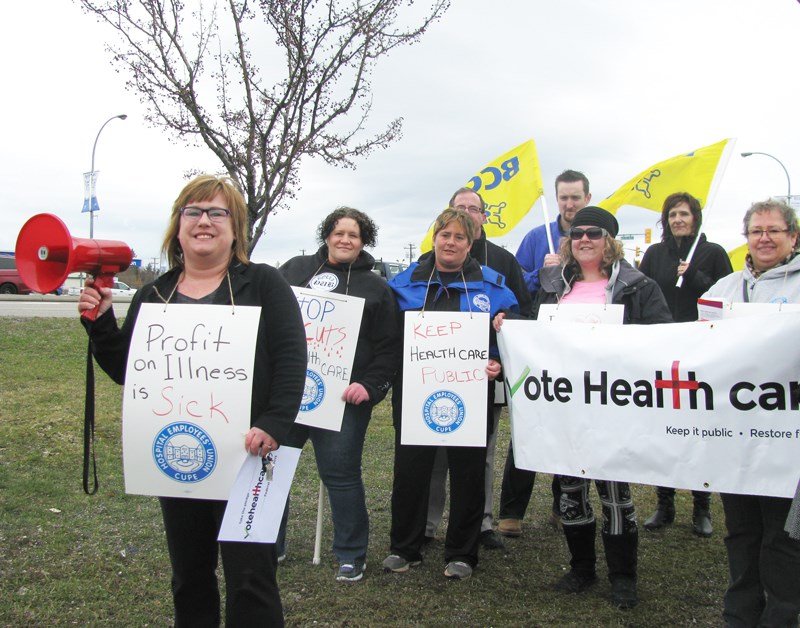Prince George was one of 30 rally sites Tuesday as B.C. health care workers protested the one-year anniversary after the national Health Accord expired.
More than 20 health care workers and Hospital Employees' Union members stood at the intersection of 15 Avenue and Central, waving flags and signs as passing cars honked support.
They joined a national day of action, organized by the Canadian Health Coalition, which is demanding the 10-year agreement be renewed. The accord guaranteed federal health care funding to provinces and territories.
It represents a $36 billion cut to federal transfers over a 10-year period, said Stephanie Smith, president of the BC Government and Services Employees' Union.
"We are not an impoverished country. We're not an impoverished province and it is always about spending priorities," said Smith of the accord, which expired March 31, 2014.
B.C. stands to lose $5 billion, Smith said.
While the provincial government announced increases to health care in its budget, Smith said that was counteracted by increases to health care premiums.
"We're going to see user fees increasing. We're seeing that in some hospitals already."
Smith worries Canada is moving toward for-profit and private forms of health care delivery.
"We already have a health care system that's stretched," she said, adding that rural and isolated communities are underserved with patients often travelling long distances for care. "It's going to get worse in my opinion."
In Prince George, rally captain Natalie Fletcher said patients and staff have long been feeling the impact of underfunding.
"We're having to do more with less every day is how our members feel," said Fletcher, who is a sterile processing technician at the University Hospital of Northern British Columbia and a Hospital Employees' Union representative.
Patients complain of lengthy wait times, with some waiting months for long term care beds, she said.
"When you come into hospital for care and your bed is put in the hallway and you've got room dividers on either side, dividing you from the next patient, it's pretty hard to keep your dignity," said Fletcher, who hears the stories from her members.
Staffing shortages and a large workload are common concerns brought to her by members.
"Working under those conditions, it becomes sort of a toxic work environment."
Fletcher said her complaints don't lie with Northern Health, which does what it can, instead calling it part of a national problem.
"I think federal funding is what's crucial," she said. "In 2015 we need to vote for health care."



